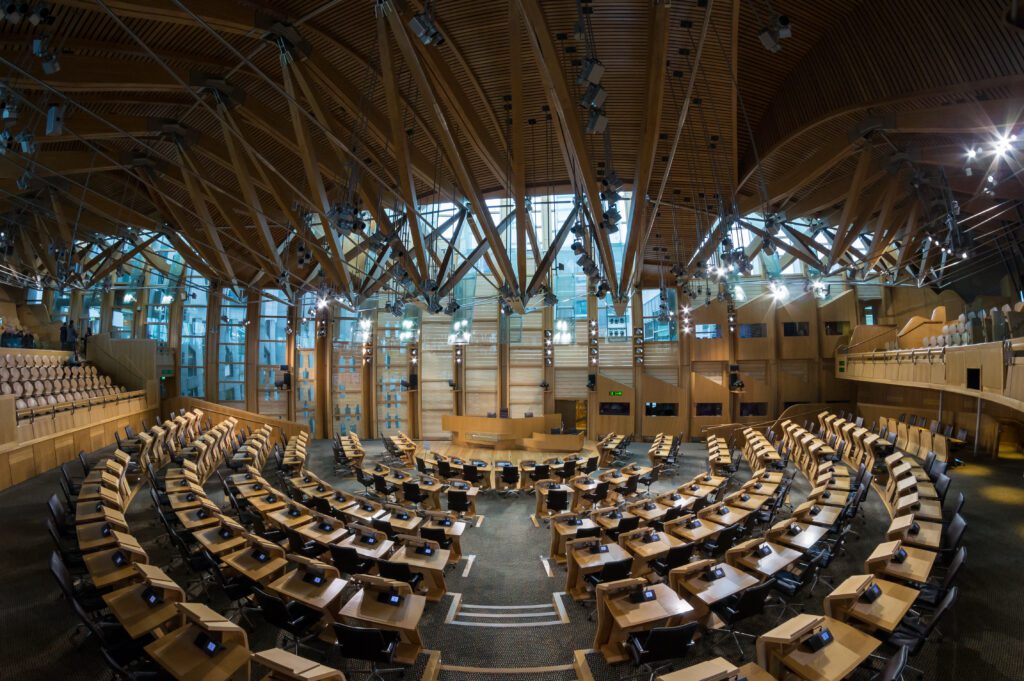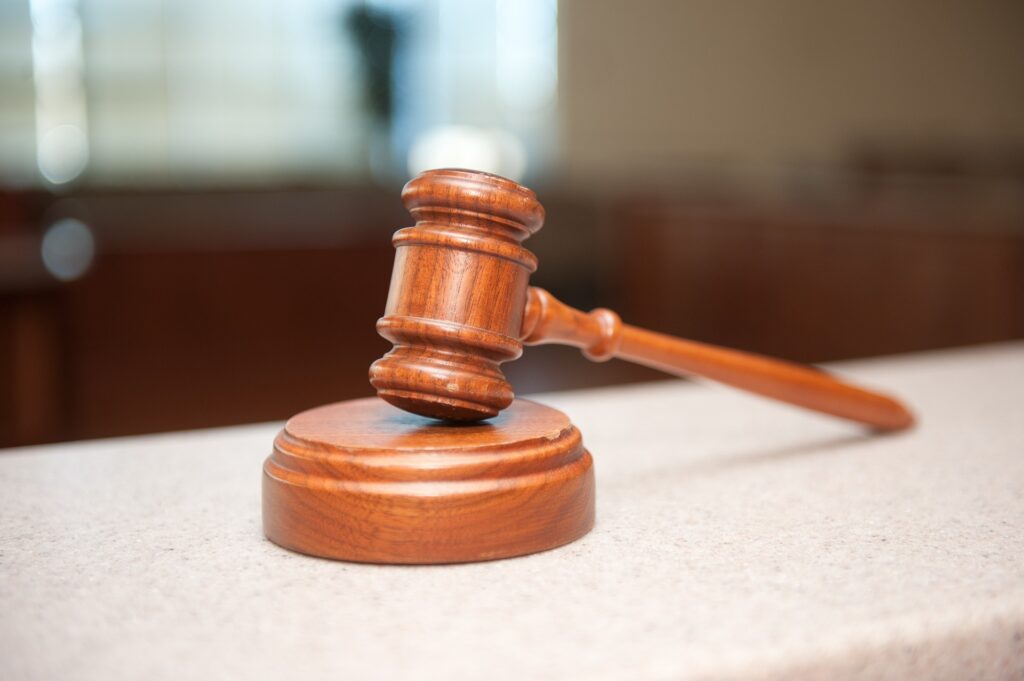The following short guide aims to help Europeans (as well as some English and Scottish people!) understand Scotland’s distinct and separate political, parliamentary and legal structures. This is in addition to Scotland having its own Church and Education system. As a separate nation within the UK, Scotland already has a very well established and distinct apparatus for governing.

Are England and Scotland the same country?
No, they are separate countries. Together with Northern Ireland and Wales, Scotland and England form the United Kingdom (UK), effectively a 4-nation union. Scotland, Northern Ireland and Wales all have varying degrees of autonomy, while the overall governance of the 4 countries continues to be delivered by the main UK Parliament at Westminster in London, England. Scotland has the most autonomy of the 3, next to England.
Constitutional Monarchy
The UK (including Scotland) is a Constitutional monarchy. The monarch (currently King Charles III) is the head of state, and all laws passed, including those passed in the Scottish Parliament, have to receive Royal Assent (agreement by the Monarch) before they can become law. Overall, the UK Government governs, while the UK Parliament has responsibility for making laws.
Constitution – written but not all in one place!
The UK (including Scotland) has a constitution, but it is not in an easily recognisable constitutional format that Europeans would be familiar with. The UK’s constitution, in contrast, is a legal system guided by precedent, existing laws, as well as previous court cases and judges’ decisions.

Scotland’s Parliament – a bit of history!
- 9th century until 1603 – Scotland is a distinct Kingdom with its own King or Queen and court. In 1603 James VI, King of Scots, becomes King James I of England and Scotland. Scotland maintains its own law-making Parliament (established in the early 13th century) until 1707.
- 1707 – Through the Acts of Union of 1707, the Kingdom of Scotland merges with the Kingdom of England to form the Kingdom of Great Britain. Scotland loses its Parliament, which merges with the English Parliament in Westminster.
- 1997 – The Scottish people vote overwhelmingly in a Referendum for Scotland to regain its own Parliament.
- 1998 – The Scotland Act creates the Scottish Parliament, based at Holyrood in Edinburgh. The first meeting was held in May 1999 (see https://www.parliament.scot/about/history-of-the-scottish-parliament).
What is Devolution?
Within the UK, Scotland, Northern Ireland and Wales all have varying levels of devolved powers (these are powers which are transferred by the UK Government to the other nations’ Parliament or Assembly). Of these nations, Scotland has the greatest degree of devolved powers and therefore the Scottish Parliament is the most autonomous of the 3 nations. An interesting point is that England does not have its own Parliament to pass English-specific laws.
Scottish people are represented by two types of politicians in two different Parliaments: MPs (Members of Parliament) at Westminster are responsible for UK-wide issues (Reserved Matters) while MSPs (Members of the Scottish Parliament) at Holyrood are responsible for Scottish-specific issues (Devolved Matters).
- Reserved Powers: As Scotland is part of the United Kingdom, some powers are still the responsibility of the UK Parliament at Westminster. These are known as Reserved powers and include, for example, Defence, Foreign Affairs, Immigration and Drug Control, and last but not least, Constitutional Affairs, which has a direct impact on decisions relating to Scotland’s devolution!
- Devolved Powers: The Scottish Parliament has the power to make laws and decisions on many issues without needing approval from the UK Parliament. These are known as Devolved powers (they allow local decision-making in Scotland). These include, for example, Health (NHS Scotland is the National Health Service which operates in Scotland, distinctly from the NHS in England and Wales), Education, Environment, and Justice (Criminal, Civil and Property Law).
How the Scottish Parliament Works
Decision-making in Scotland
Members of the Scottish Parliament (MSPs) can hold debates and make new laws in the areas for which the Scottish Parliament has powers to do so. The Scottish Parliament does not have a second/unelected chamber, unlike the House of Lords in Westminster.
There are currently 73 MSPs, elected to the Scottish Parliament every 4 years.
Electoral System
Scotland’s electoral system is widely considered to be the most proportional in the UK and is called the Additional Members System (AMS), a form of D’Hondt system used by many European democracies. In contrast, the UK parliamentary elections use the First Past the Post system (FPTP).
Scotland’s system of proportional representation, where parties almost always have to form coalitions in order to govern, is much closer to the European norm than the UK FPTP system.
A key strength of the Scottish Parliament is its system of Committees. They can propose and examine new laws. These Committees have up to fifteen members and discuss legislation in detail.
The First Minister (FM)
The leader of the Scottish Government is known as the First Minister (FM) for Scotland and is officially appointed by the monarch.
The First Minister is elected by the majority of all MSPs (Members of the Scottish Parliament). The First Minister for Scotland selects and chairs the Scottish cabinet, the main decision-making body of the Scottish Government, who oversees and is responsible for Devolved departments.
The First Minister and their cabinet are collectively accountable for their policies to the Scottish Parliament and appear at Parliament each week and answer MSPs’ questions.

The differences between English Law and Scottish Law
Scotland has always had its own distinct and separate legal judicial system called “Scots Law”, which is different from the law of England, Wales and Northern Ireland.
The system in England & Wales is based on common law (i.e. custom & precedence). Scotland, by contrast, has a mixed legal system dating to the Roman period and is predominantly civil code based, similar to most of Europe.
Scots Law governs most aspects of the daily lives of people who live in Scotland. The law in Scotland differs significantly from England in the following areas: the buying and selling of property, divorce settlements, making a will, criminal law as well as personal injury claims.
An excellent example of just how different and distinct Scots Law is, is that a qualified Scottish solicitor or a qualified English solicitor cannot practice law in each other’s country. Both must complete a conversion course before they can do so.
Tanya Pia Starrett – Europe for Scotland ambassador in Italy

